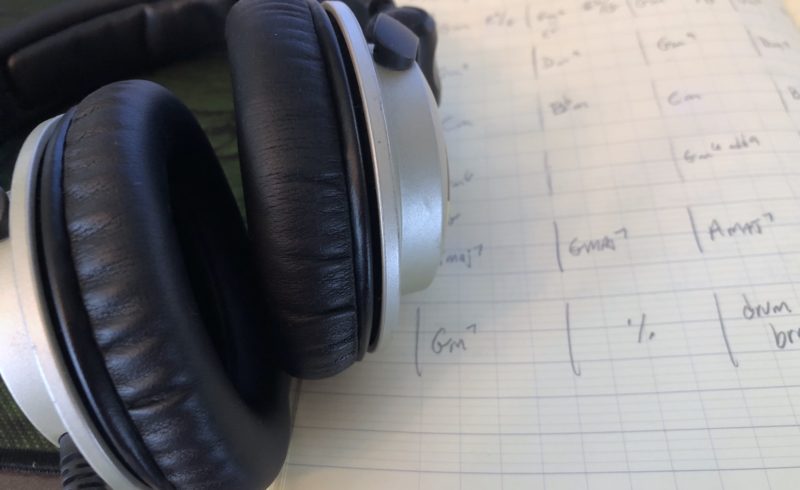
There’s not much that amuses copyright experts more than seeing non-sensical tags such as “No Copyright Intended” and the like in social media posts that contain popular songs. The posters are aware obviously that the post possibly infringes, but they believe the tag excuses them somehow. “Copyright” is pretty much the right to copy, and if you don’t possess those rights but you want to attach a popular song to your social media video, well, sometimes it’s perfectly okay, and sometimes not!
TikTok, for example, makes it super easy to associate popular songs with videos. It provides a searchable library with curated categories such as “new releases.” Songs that BECAME popular mostly because of their use in TikTok videos even have a whole channel dedicated to them (It’s channel number four!) on Sirius XM radio. TikTok has blanket licenses with the music publishers. That’s all cool.
Unless you’re a brand.
Warner Music Group is suing Iconic London, a cosmetics company, for copyright infringement because, evidently Iconic London has tons of videos across social media that demonstrate and promote its product; those videos may have at times featured well-known recordings by popular artists, and many of those artists are with Warner.
A couple of months back, Universal Music Group sued energy drink makers Bang Energy and said they’d used 187 songs from their catalog, including songs by The Weeknd, Justin Bieber and Dua Lipa.
And it’s not completely unforeseeable that content providers might not realize there are limits to, for example, TikTok’s agreements with music publishers. TikTok provides a toggle setting for users to disclose that their content is “branded,” and then refers the user to its “Branded Content Policy,” which applies to content that promotes goods and services where the content creator gets something of value in return for the posting. And TikTok’s audio library interface contains a toggle that filters for audio available for “commercial use,” and that library is described as containing 500,000 audio assets. But as for using sounds in the general library or sounds that other TikTok-ers have posted, TikTok’s Business Help Center reminds us:
Business Accounts are not blocked from using original sound that other users upload, but please note that TikTok has not cleared these sounds to use for commercial purposes.
https://ads.tiktok.com/help/article/commercial-music-library?redirected=1
According to Universal Music’s complaint, when UMG reached out to them, Bang responded by saying, “Our understanding is that TikTok provides use of these songs, and others, with a license to all of its members.” Honestly, you can sympathize. New technological frontiers certainly present confusion, and not everyone understands intellectual property rights or copyright infringement. There was a time when sampling, or “digital sampling” as we used to say, seemed like a bit of a free for all too. But eventually, legalities catch up, if not very equitably, and so here, as with Bang Energy, comes another of the “big three” record companies, Warner Music Group (Atlantic, Bad Boy, Elektra, Rhino, and other familiar names are all under that umbrella) with a big stick with which to draw a line in the sand, or just hit someone over the head with. (Sony is the third of the so called “big three,” if you were wondering.) Infringement doesn’t need to be intentional.
The U.S. Copyright Act is a strict liability statute. In other words, following a “rule” that you believe to be true but which turns out to be a myth will not excuse you from liability for infringement. Under certain circumstances, it is possible to plead “innocent infringement,” but even that only serves to reduce the amount of damages you may owe and does not excuse your infringement.
According to the complaint, the defendant, Iconic London, misappropriated more than one hundred and sixty-five works from the WMG catalogs for use in their social media posts. (though the complaint later lists 169 works) And WMG’s catalogs contain, obviously, some of the biggest artists in the world. The complaint names Ariana Grande, Beyoncé, Bruno Mars, Cardi B, Dua Lipa, and I’m starting alphabetically, so you can imagine. Iconic’s postings didn’t intentionally limit themselves to WMG tracks, one presumes, so we’d expect to see more complaints like this. Maybe we’ll hear from Sony next.
Iconic London is, let’s assume, in England, and statutory damages awards in the UK are handled differently from the US, but how any of that matters is not something we’re expert in. (IANAL) Warner filed in the United States, which contains an audience toward which, according to the complaint, Iconic has purposefully directed its activities, for what it’s worth, and in the United States statutory damages can range from a few hundred bucks to $150,000. Remember that quote (above) from the AMA, about strict liability and how being unintentional might affect damages? It sure can. Those upper ranges of statutory damages are reserved for willful infringements. We counted no fewer than four occurrences of the terms “willful” and “deliberate” in the complaint. So, what might all this come to? Musicologize is neither comprised of lawyers nor mathematicians, so “Hey Google, what’s 150,000 times 165?”
Google replied with a very large number.
This doesn’t mean that large number is necessarily the number. (It was $24,750,000 by the way.) The complaint does mention “$150,000 with respect to each work infringed,” so that’s one possible outcome I guess. But alternatively they would seek “actual damages, including Defendants’ profits from infringement.” The plaintiffs describe Iconic’s growth as meteoric, and attribute much of it to the alleged unauthorized exploitations. So they’re going to come up with a big number on that side of things too.
Again, neither lawyers nor mathematicians here, but don’t expect this to go to court, and don’t expect a number anything like 25 million. But expect it to be more than enough to justify reading the terms and conditions next time.